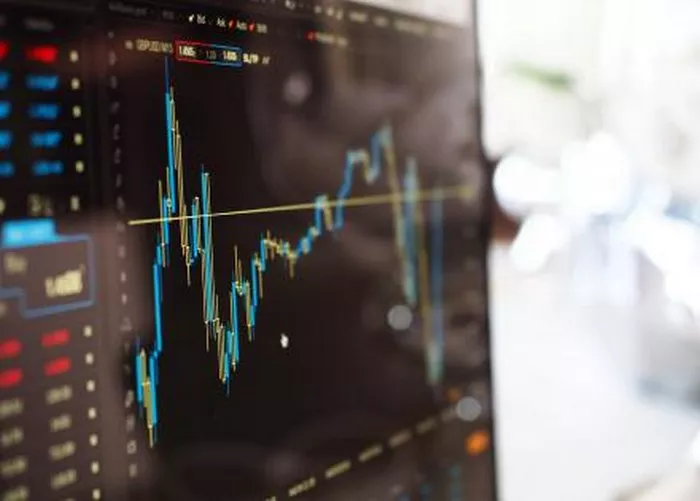Stock index futures are a cornerstone of the financial world, providing investors, traders, and financial analysts with a window into the future performance of broader markets. Understanding the nuances of stock index futures prices is essential for making informed investment decisions and navigating the complexities of modern financial markets.
Defining Stock Index Futures
Stock index futures are financial contracts that allow market participants to speculate on the future value of a specific stock market index. These contracts are used to predict how a particular index, such as the S&P 500 or the Dow Jones Industrial Average, will perform at a future date. Stock index futures are standardized agreements, with predefined contract sizes, expiration dates, and settlement mechanisms. By trading these futures contracts, investors can hedge against market volatility, manage risk, and capitalize on market movements.
The Role of Spot Prices
The prices of stock index futures are intricately tied to the spot prices of the underlying index. The spot price refers to the current value of the index in the cash market. The relationship between stock index futures prices and spot prices is driven by arbitrage opportunities. Arbitrageurs exploit price differences between the futures and spot markets to lock in profits. Consequently, the prices of stock index futures tend to closely mirror the movements of the spot index.
Supply and Demand Dynamics
Supply and demand dynamics play a pivotal role in shaping stock index futures prices. The interaction between buyers and sellers in the futures market directly impacts the equilibrium price. When there is more buying interest (demand) for a particular futures contract, its price tends to rise. Conversely, increased selling interest (supply) can lead to price declines. Understanding the forces of supply and demand is crucial for investors seeking to interpret price movements and make well-timed trading decisions.
Market Sentiment and Investor Behavior
Market sentiment and investor behavior have a profound impact on stock index futures prices. Positive news, economic indicators, and corporate earnings reports can boost investor confidence and drive up futures prices. Conversely, negative news or geopolitical uncertainties can lead to a decline in prices as investors seek to mitigate risk. The psychology of fear and greed among investors plays a significant role in shaping short-term fluctuations in stock index futures prices.
Interest Rates and Cost of Carry
Interest rates and the cost of carry are vital considerations when analyzing stock index futures prices. The cost of carry includes factors such as interest rates, dividends, and storage costs. For instance, if the dividends of the underlying index are higher than prevailing interest rates, futures prices may trade at a premium to the spot index. Conversely, when interest rates surpass dividends, futures prices may trade at a discount. These relationships reflect the market’s expectations for future interest rates and dividend payments.
Expiration and Roll Costs
Stock index futures contracts have specific expiration dates, at which point investors must decide whether to close out their positions or roll them over to the next contract. The process of rolling involves closing out the expiring contract and simultaneously opening a new contract with a later expiration date. Roll costs can impact futures prices, especially when there are significant changes in market conditions or liquidity during the roll period. Traders should consider roll costs when making decisions about holding or rolling futures positions.
Market Liquidity
Liquidity, or the ease with which a futures contract can be bought or sold without significantly affecting its price, is a critical factor in determining stock index futures prices. Contracts with higher liquidity tend to have narrower bid-ask spreads and are less susceptible to sharp price fluctuations. Market participants should be mindful of liquidity levels when trading stock index futures, as low liquidity can result in higher transaction costs and greater price volatility.
Volatility and Risk Premiums
Volatility, a measure of how much an asset’s price fluctuates over time, has a significant influence on stock index futures prices. Higher levels of volatility can lead to wider price swings in futures contracts. Moreover, increased market uncertainty often leads to the addition of risk premiums to futures prices. Risk premiums compensate investors for the potential risks associated with holding futures contracts during periods of heightened uncertainty.
Global Economic Factors
Stock index futures prices are not isolated from global economic factors. International events, such as economic data releases, geopolitical tensions, and trade negotiations, can have far-reaching impacts on stock markets and, consequently, on stock index futures prices. Investors need to consider the interconnectedness of global economies and markets when analyzing and predicting futures prices.
External Influences on Stock Index Futures Prices
In addition to the aforementioned factors, external influences can affect stock index futures prices. Regulatory changes, government policies, central bank decisions, and unexpected market events can all trigger rapid shifts in futures prices. Traders and investors must stay vigilant and remain attuned to both market-specific and broader macroeconomic developments that can influence the trajectory of stock index futures prices.
Conclusion
Understanding the intricate dynamics that shape stock index futures prices is essential for anyone seeking to navigate the complexities of the financial markets. The interplay between spot prices, supply and demand, market sentiment, interest rates, expiration, liquidity, volatility, and global economic factors all contribute to the fluctuations in stock index futures prices. Armed with this knowledge, investors and traders can make informed decisions, develop effective trading strategies, and manage risk in an ever-evolving financial landscape.


